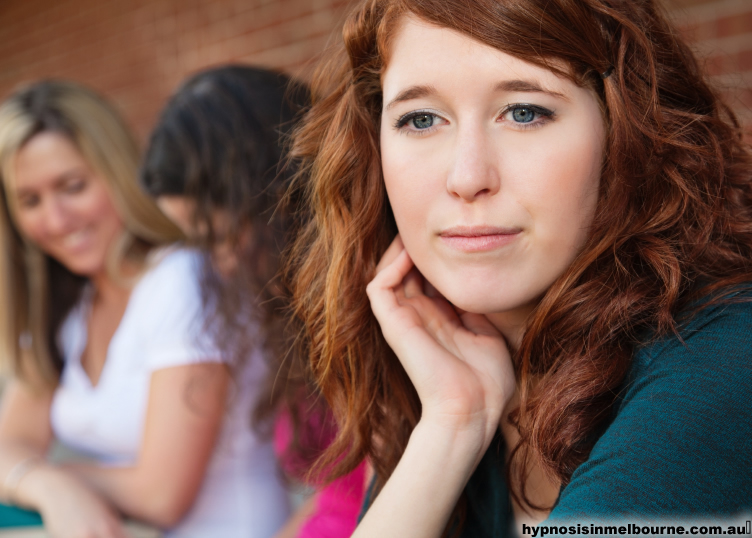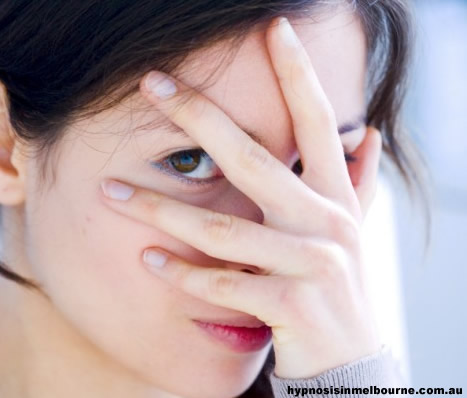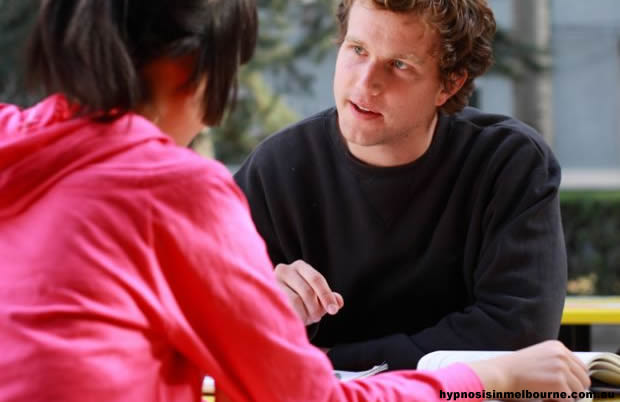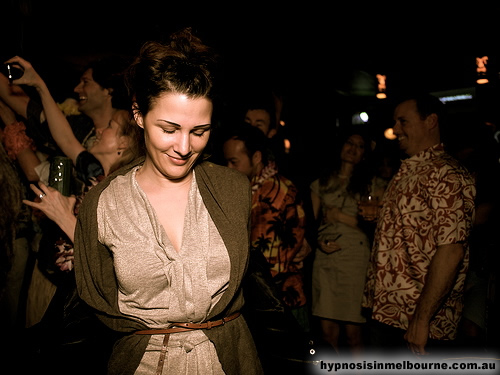Relax…You…Are…Getting…Bolder!
Beverly Donofrio was shy, mute at parties, and thought talking to strangers was a good way to ruin an evening. Then she had a session with a hypnotist, and she’ll tell you all about it once she gets the lamp shade off her head.
A few years ago, when I complained to my latest, greatest, and now past therapist that I didn’t want to go to some party I was invited to, I’d be bored, have nothing to say to people—whom I wouldn’t like and who wouldn’t like me—she pinned me with her penetrating gaze and said, “You’re a shy person.”
I didn’t believe my therapist. Even though I did remember suffering paroxysms of dread whenever I might be called on in once it had been offered because I was too shy. But that was a long time ago. Shy adults can’t make eye contact; they dress plainly and turn red if you compliment them. I am not like that at all. I can be a flamboyant dresser, I meet your eye, and positively glow from attention and praise. I can even, if in the mood, be gregarious.
Sure, I often turned down an invitation, but I thought I was merely a recluse or maybe a wet blanket until the afternoon I took a beta-blocker and experienced what it is like to truly not be shy. A few of us had made up a song and dance routine to perform at a friend’s wedding as a toast. Before the performance, I took a beta-blocker, offered by a musician who claimed she could not be a performing oboist without it. Beta-blockers are disinhibitors, often prescribed for people who have to speak or perform in public. I didn’t take the pill sufficiently in advance to calm my nerves during the performance, but by the time I took my seat at the dinner table, it had kicked in. I am certain of this because of the outrageous idea I had: I should talk to somebody I didn’t know.
After I talked to a dozen perfect strangers—and table-hopped to do it—instead of going home after the wedding reception, I went looking for a party I’d been invited to. I’d left the address at home because never in a million years had I expected to go. I couldn’t find the party, so I drove into town to hear my friend Roland (who’d been inviting me for a year) play jazz at a bar. It felt a little awkward to walk into a bar alone on a Saturday night, but not awkward enough to stop me. As I sat down and ordered a lemonade—Sundays are my favorite days and I didn’t want to risk a hangover—it occurred to me that I was having fun. It also occurred to me this was probably due to the beta-blocker. I felt calm and easy, curious. It wasn’t like being drunk, when you might say or do outrageous things. On the beta-blocker, I was behaving in the way I’d always aspired to: I was open, spontaneous, friendly.

At the bar, I struck up a conversation with the couple sitting beside me. They were tourists in my town, and when they told me they were thinking of returning for a month in the summer, I suggested that they might like to rent my house because I’d be away then. We made a date for them to come by on Sunday at 2 in the afternoon.
The next morning, no longer under the influence of the beta-blocker, I had a mini breakdown. Strangers interrupting my Sunday? And I’d have to talk to them. The old panic rushed in. Talking was easy last night, but it wouldn’t be today, and they wouldn’t like me. I taped a note to my door apologizing for being unable to meet with them and then went about my solitary day—until 2 o’clock, when there came a knocking at my door. Actually, it was a banging. Evidently the note had blown away. I didn’t answer, and the strangers didn’t go away. Once I’d failed to respond, it was impossible to answer the door. They knocked on neighbors’ doors. They waited on the stoop. I crouched on my bed, my arms over my head, like I’d been taught to do as a kid in case of nuclear attack.



